ناموجود
BCR ABL (m-bcr) Quant Real-TM (NEW),sacace -100 t
Sacace™ BCR-ABL M-bcr Real-TM Quant VER 21.03.2013 For in Vitro Diagnostic Use BCR-ABL M-bcr Real-TM Quant HANDBOOK Real-Time test for detection and quantification of mRNA chimeric gene bcr-abl (M-bcr) and mRNA gene abl in the clinical material by Real Time PCR REF R-O1 100 Sacace™ BCR-ABL M-bcr Real-TM Quant VER 21.03.2013 NAME BCR-ABL M-bcr Real-TM Quant INTENDED USE BCR-ABL M-bcr Real-TM Quant is a Real-Time test for detection and quantification of mRNA chimeric gene bcr-abl (M-bcr) and mRNA gene abl in the clinical material by Real Time PCR. BCR-ABL M-bcr Real-TM Quant kit can be used for screening of CML (chronic myeloid leukemia) associated with chromosomal translocation of M-bcr-abl, to confirm the CML diagnosis, for monitoring a minimal residual disease (MRD) and for the effectiveness of the therapy. This kit contains reagents for 50 tests for quantitative detection (2 repetitions for sample) or 100 tests (120 reverse transcriptions and 360 PCR) for qualitative (screening) detection. BCR-ABL M-bcr Real-TM Quant kit contains all the reagents for the reverse transcription of the RNA in cDNA and real time amplification. PRINCIPLE OF ASSAY BCR-ABL M-bcr Real-TM Quant is based on three major processes: 1. isolation of total RNA from specimens (isolation procedure is based to the RNA isolation method developed by Chomczynski, when using RNA extraction kit Sacace Ribo-Zol-D kit – REF K-2-2-100) 2. reverse transcription of the RNA; 3. real time PCR with two mixes of the oligonucleotides: amplification of mRNA of the chimeric gene M-bcr-abl (p210), corresponding to the region of the fusion abl and bcr genes (b2a2 and b3a2) and a fragment of mRNA of splicing region of abl gene (recommended by the working group “Europe Against Cancer”, EAC), as an endogenous internal control and gene-normalizer. The result of amplification is detected on fluorescence channel Yellow /JOE/HEX. Standard curves with known concentrations of both the endogenous ABL control and the BCR-ABL m-bcr fusion cDNA allow the calculation of the ratio of BCR-ABL m-bcr fusion transcript signal to endogenous ABL signal in each sample. Use of endogenous internal control allows to monitor all the stages of analysis (sampling, transportation, storage, extraction of RNA, reverse transcription of RNA and amplification of cDNA), as well as to count precisely the number of chimeric mRNA bcr-abl gene, taking into account the number and quality of clinical material (normalization). Sacace™ BCR-ABL M-bcr Real-TM Quant VER 21.03.2013 MATERIALS PROVIDED Module No.1: Real Time PCR kit (R-O1) Part N° 1 – “RNA-eluent bcr-abl”: RNA-eluent bcr-abl, 10 x 0,4 ml. IMPORTANT! RNA-eluent bcr-abl reagent must always be used for RNA elution regardless of the RNA extraction kit used! Part N° 2 – “Controls”: Controls kit Negative Control, 2 x 1,2 ml; tRNA 1 mg/µl, 5 x 0,06 ml; Positive Controls: Pos1 bcr-abl*, 0,03 ml; Pos2 bcr-abl*, 5 x 0,03 ml Pos1 bcr-abl and Pos2 bcr-abl are bcr-abl mRNA fragments with known concentration, protected by a membrane of RNA-containing bacteriophage. These controls allows to evaluate the quality of all the steps of the assay. The assessment is carried out under the comparison of given control concentrations, specified in the Data Sheet specific for each lot of the reagents, with the results obtained during the experiment. The positive control 2 must be used every time whenever sample processing takes place. It is recommended to put the positive control 1 once for the new lot of reagents. Part N° 3 – “Reverta-L”: Reverse transcription kit RT-G-mix-1, 10 x 0,01 ml RT-mix, 10 x 0,125 ml; Revertase (M-MLV), 0,06 ml; TE-buffer, 2 x 1,2 ml. Contains reagents for 120 tests. Part N° 4 – “BCR-ABL M-bcr quant”: Real Time amplification kit PCR-mix-1 M-bcr-abl, 10 x 0,13 mL PCR-mix-1 N-abl, 10 x 0,13 mL PCR-buffer, 10 x 0,3 mL. TaqF Polymerase, 10 x 0,02 mL DNA-buffer (Negative Control), 2 x 1,2 mL. Standards o QS1 bcr-abl/N-abl, 5 x 0,045 mL; o QS2 bcr-abl/N-abl, 5 x 0,045 mL; o QS3 bcr-abl/N-abl, 5 x 0,045 mL; o QS4 bcr-abl/N-abl, 5 x 0,045 mL; o QS5 bcr-abl/N-abl, 5 x 0,045 mL;; The standards are plasmid-based specimens containing cDNA of chimeric bcr-abl gene and abl gene normalizer. Contains reagents sufficient for 360 reactions (180 with each PCR-mix-1). * add 10 µl of Pos2 bcr-abl (or Pos1 bcr-abl) to the tube labeled Cpos at the beginning of RNA extraction. Sacace™ BCR-ABL M-bcr Real-TM Quant VER 21.03.2013 MATERIALS REQUIRED BUT NOT PROVIDED Zone 1: sample preparation: Biological cabinet Desktop microcentrifuge for “eppendorf” type tubes (RCF max. 16,000 x g); Dry heat block Vortex mixer Pipettors Filter tips 1,5 ml polypropylene sterile tubes Disposable gloves, powderless Biohazard waste container Refrigerator, Freezer Zone 2: RT and amplification: Real Time Thermal cycler Reaction tubes Workstation Pipettors Filter tips Tube racks STORAGE INSTRUCTIONS “Controls” must be stored at 2-8°C. RNA-eluent bcr-abl and tRNA at -20°C. Part N° 3, 4 – “Reverta-L” and “BCR-ABL M-bcr quant” must be stored at -20°C. The kits can be shipped at 2-8°C, but should be stored at 2-8°C and -20°C according to the reagent immediately on receipt. STABILITY BCR-ABL M-bcr Real-TM Quant test is stable up to the expiration date indicated on the kit label. The product will maintain performance through the control date printed on the label. The shelf life of reagents before and after the first use is the same, unless otherwise stated. Exposure to light, heat or humidity may affect the shelf life of some of the kit components and should be avoided. Repeated thawing and freezing of these reagents should be avoided, as this may reduce the sensitivity. QUALITY CONTROL In accordance with Sacace’s ISO 13485-Certified Quality Management System, each lot is tested against predetermined specifications to ensure consistent product quality. Sacace™ BCR-ABL M-bcr Real-TM Quant VER 21.03.2013 WARNINGS AND PRECAUTIONS The user should always pay attention to the following: Use sterile pipette tips with aerosol barriers and use new tip for every procedure. Store extracted positive material (samples, controls and amplicons) away from all other reagents and add it to the reaction mix in a separate area. Thaw all components thoroughly at room temperature before starting an assay. When thawed, mix the components and centrifuge briefly. Use disposable gloves, laboratory coats and eye protection when handling specimens and reagents. Thoroughly wash hands afterwards. Do not eat, drink, smoke, apply cosmetics, or handle contact lenses in laboratory work areas. Do not use a kit after its expiration date. Dispose of all specimens and unused reagents in accordance with local authorities’ regulations. Specimens should be considered potentially infectious and handled in a biological cabinet in accordance with appropriate biosafety practices. Clean and disinfect all sample or reagent spills using a disinfectant such as 0.5% sodium hypochlorite, or other suitable disinfectant. Avoid sample or reagent contact with the skin, eyes, and mucous membranes. If skin, eyes, or mucous membranes come into contact, rinse immediately with water and seek medical advice immediately. Material Safety Data Sheets (MSDS) are available on request. Use of this product should be limited to personnel trained in the techniques of DNA amplification. The laboratory process must be one-directional, it should begin in the Extraction Area and then move to the Amplification and Detection Areas. Do not return samples, equipment and reagents to the area in which the previous step was performed. Some components of this kit contain sodium azide as a preservative. Do not use metal tubing for reagent transfer. Sacace™ BCR-ABL M-bcr Real-TM Quant VER 21.03.2013 PRODUCT USE LIMITATIONS All reagents may exclusively be used in in vitro diagnostics. Use of this product should be limited to personnel trained in the techniques of DNA amplification (UNI EN ISO 18113-2:2012). Strict compliance with the user manual is required for optimal PCR results. Attention should be paid to expiration dates printed on the box and labels of all components. Do not use a kit after its expiration date. SAMPLE COLLECTION, STORAGE AND TRANSPORT BCR-ABL M-bcr Real-TM Quant can analyze RNA extracted from: Whole blood collected in EDTA tubes. Store at +2-8°C for a maximum of 48 hours before processing Centrifuge the tube for 20 min at 800-1600 g and transfer 200 µl of buffy coat in the new tube. Add 800 µl of Solution D. Mix by inverting. This sample can be stored at – 20°C for 1 month or at -70°C for 1 year. Whole blood collected in tubes with RNA stabilizer (PAXgene™ (PreAnalytiX). Store the PAXgene™ Blood RNA Tube upright at room temperature (18ºC to 25ºC) for a minimum of 2 hours and a maximum of 72 hours before processing or transferring to refrigerator (2ºC to 8ºC) or freezer (-20ºC). Thaw the PAXgene™ Blood RNA Tubes in a wire rack at ambient temperature (18ºC – 25ºC) for approximately two hours. Bone marrow aspirate must be processed immediately by adding of 800 µl of Solution D to 200 µl of bone marrow. Mix by inverting and centrifuge for 5 min at 5000 g. This sample can be stored at – 20°C for 1 month or at -70°C for 1 year. Bone marrow collected in the tubes with RNA stabilizer (PAXgene™ Bone Marrow RNA Tubes (PreAnalytiX). PAXgeneBone Marrow RNA Tubes can be stored 3 days at 18–25°C, 5 days at 2–8°C or 1 year at -20°C. Transportation of clinical specimens must comply with country, federal, state and local regulations for the transport of etiologic agents. RNA ISOLATION Any commercial RNA/DNA isolation kit, if IVD-CE validated for the specimen types indicated herein at the “SAMPLE COLLECTION, STORAGE AND TRANSPORT” paragraph, could be used. IMPORTANT: RNA-eluent bcr-abl provided with the kit must always be used for RNA elution regardless of the RNA extraction kit used! Sacace™ BCR-ABL M-bcr Real-TM Quant VER 21.03.2013 RECOMMENDED SAMPLES FORMATS We recommend testing at least 5 samples in the same experiment, to optimize the use of the reagents. The following table shows an example of the quantity of samples for one (two) set of reagents. Format Quantitative test Screening (Qualitative) test One set of reagents (34 PCR reactions) Two set of reagents (68 PCR reactions) One set of reagents (28 PCR reactions) Two set of reagents (52 PCR reactions) Samples 5 samples 11 samples 10 samples 22 samples RNA Extraction 12 extractions (5 samples in 2 repetitions, Pos2 bcr-abl control and Negative Control) 24 extractions (11 samples in 2 repetitions, Pos2 bcr-abl control and Negative Control) 12 extractions (10 samples, Pos2 bcr-abl control and Negative Control) 24 extractions (22 samples, Pos2 bcr-abl control and Negative Control) Reverse transcription 12 reactions 24 reactions 12 reactions 24 reactions Real Time Amplification 18 reactions with PCR-mix-1 bcr-abl 16 reactions with PCR-mix-1 N-abl (12 extracted samples, 1 DNAbuffer in each mix, 5 standards for PCRmix-1 bcr-abl and 3 standards for PCRmix-1 N-abl) 36 reactions with PCR-mix-1 bcr-abl 32 reactions with PCR-mix-1 N-abl (24 extracted samples, 2 DNAbuffer in each mix, 5 standards for PCRmix-1 bcr-abl and 3 standards for PCRmix-1 N-abl) 14 reactions with PCR-mix-1 bcr-abl 14 reactions with PCR-mix-1 N-abl (12 extracted samples, DNA-buffer in each mix, QS5 for PCR-mix1 bcr-abl and QS3 for PCR-mix-1 N-abl) 26 reactions with PCR-mix-1 bcr-abl 26 reactions with PCR-mix-1 N-abl (24 extracted samples, DNAbuffer in each mix, QS5 for PCR-mix-1 bcr-abl and QS3 for PCR-mix-1 Nabl) Table 1: Samples for experiment N.B. One set of reagents includes Part N° 3 – “Reverta-L” (RT-mix and RT-G-mix-1) and Part N° 4 – “BCR-ABL M-bcr quant” (PCR-mix-1 M-bcr-abl, PCR-mix-1 N-abl, PCR-buffer, TaqF Polymerase) Sacace™ BCR-ABL M-bcr Real-TM Quant VER 21.03.2013 REVERSE TRANSCRIPTION PROTOCOL: Reverse Transcription: 1) Prepare Reaction Mix: for 12 reactions, add 5,0 µl RT-G-mix-1 into the tube containing RTmix and vortex for at least 5-10 seconds, centrifuge briefly. This mix is stable for 1 month at -20°C. Add 6 µl M-MLV into the tube with Reaction Mix, mix by pipetting, vortex for 3 sec, centrifuge for 5-7 sec (must be used immediately after the preparation). (If it is necessary to test less than 12 samples add for each sample (N) in the new sterile tube 10*N µl of RT-G-mix-1 with RT-mix (Reaction Mix) and 0,5*N µl of M-MLV). 2) Add 10 of Reaction Mix into each sample tube. 3) Pipette 15 µl RNA samples to the appropriate tube. Carefully mix by pipetting. 4) Place tubes into thermalcycler and program the following temperature profile: Step Temperature Time 1 50°С 15 min 2 95°С 3 min Table 2: Reverse transcription cDNA specimens could be stored at -20oС for a week or at -70oС during a year. Sacace™ BCR-ABL M-bcr Real-TM Quant VER 21.03.2013 REAL TIME PCR 1. Thaw one set of reagents, vortex and centrifuge briefly the tubes. 2. Prepare required quantity of PCR tubes (N): Quantitative analysis: N = samples cDNA*2 + 10 Screening (Qualitative) analysis: N = samples cDNA*2 + 4 3. For each set of reagents add into the tube with PCR-buffer 20 µl of TaqF Polymerase. Vortex by pipetting. This mix is stable for 1 month at -20°C. 4. Pipette 145 µl of Mix (PCR-buffer and TaqF Polymerase) into PCR-mix-1 M-bcr-abl tube and 145 µl of Mix into PCR-mix-1 N-abl tube. 5. If it is necessary to test the other quantity of the samples than reported in the table “recommended sample format use the following calculation: Quantitative test Screening (Qualitative) test Mix for M-bcr-abl detection Mix for N-abl detection Mix for M-bcr-abl detection Mix for N-abl detection (N+7)* 7,0 µl PCR-mix-1 M-bcr-abl (N+7)* 7,5 µl PCR-buffer (N+7)* 0,5 µl TaqF Polymerase (N+5)* 7,0 µl PCR-mix1 N-abl (N+5)* 7,5 µl PCRbuffer (N+5)* 0,5 µl TaqF Polymerase (N+3)* 7,0 µl PCR-mix-1 Mbcr-abl (N+3)* 7,5 µl PCR-buffer (N+3)* 0,5 µl TaqF Polymerase (N+3)* 7,0 µl PCR-mix-1 Nabl (N+3)* 7,5 µl PCR-buffer (N+3)* 0,5 µl TaqF Polymerase 7 = 5 Standards + 1 Neg. Control + 1 margin 5 = 3 Standards + 1 Neg. Control + 1 margin 3 = 1 Standard + 1 Neg. Control + 1 margin 3 = 1 Standard + 1 Neg. Control + 1 margin Table 3. Pipetting scheme for the quantity of reagents for N samples 6. Add in each sample tube for M-bcr-abl detection 15 µl of prepared reaction mix M-bcr-abl and in each sample tube for N-abl detection 15 µl of prepared reaction mix N-abl. cDNA samples Standards Scheme 1. Example of pipetting of the reagents for the quantification of 5 samples 7. Pipette 10 µl of cDNA sample to the appropriate tube with mix M-bcr-abl and 10 µl of cDNA sample to the appropriate tube with mix N-abl 8. For each quantitative run: Prepare for M-bcr-abl mix 5 standards (QS1, QS2, QS3, QS4, QS5) and 1 Negative Control (DNA-buffer) by adding of 10 µl of these reagents to the appropriate tube; Prepare for N-abl mix 3 standards (QS1, QS2, QS3) and 1 Negative Control (DNAbuffer) by adding of 10 µl of these reagents to the appropriate tube. 9. For each qualitative run: Prepare for M-bcr-abl mix 1 standard (QS5) and 1 Negative Control (DNA-buffer) by adding of 10 µl of these reagents to the appropriate tube; Prepare for N-abl mix 1 standard (QS3) and 1 Negative Control (DNA-buffer) by adding of 10 µl of these reagents to the appropriate tube. 10. Close tubes and transfer them into the Real Time PCR instrument. Sacace™ BCR-ABL M-bcr Real-TM Quant VER 21.03.2013 Amplification 1.Create a temperature profile on your instrument as follows: Rotor-type instruments1 Plate- or modular type instruments2 Step Temperature, °С Time Cycles Temperature, °С Time Cycles Hold 95 15 min 1 95 15 min 1 Cycling 1 95 15 s 45 95 20 s 47 60 45 s fluorescent signal detection (Yellow) 60 55 s fluorescent signal detection (Joe/HEX/ Cy3) 1 RotorGene™ 3000/6000/Q (Qiagen), 2 SaCycler-96™ (Sacace), SmartCycler® (Cepheid), iQ iCycler™ and iQ5™ (Biorad), MX3000P® and MX3005P® (Agilent Tecnologies), ABI® 7300/7500 Real Time PCR Systems (Applied Biosystems) *For SmartCycler® instrument we recommend to use 2 blocks and eliminate from the experiments the QS3 and Neg PCR with PCR-mix-1 M-bcr-abl. In the first block perform all the assays with PCR-mix-1 M-bcr-abl and in the second all the assays with PCR-mix-1 N-abl. Data Analysis The results are interpreted with the software of Real Time PCR instruments through the presence of crossing of fluorescence curve with the threshold line and in accordance with instrument’s instructions. The cDNA M-bcr-abl is detected in Joe/HEX/Yellow/Cy3 channel in the tubes with PCRmix-1 M-bcr-abl and cDNA of gene-normalizer/ internal control (IC) abl is detected in Joe/HEX/Yellow/Cy3 channel in the tubes with PCR-mix-1 N-abl. Screening (qualitative) format The presence of fluorescent signal curves crossing a threshold line in the tubes with a PCR-mix1M-bcr-abl indicates the presence of bcr-abl mRNA transcript in the sample – the result is positive. The absence of a positive signal in the PCR-mix-1 M-bcr-abl with а valid value of the genenormalizer signal with the mix N-abl indicates a negative result. The signal of the gene-normalizer is considered valid if the threshold cycle (Ct) value in PCRmixt-1 N-abl is less than the Ct value of the positive control (QS3 bcr-abl/N-abl). Quantitative format Use the following formula for the calculation of the normalized concentration of RNA M-bcr-abl in the clinical and control samples: Concentration = Number copies cDNA M-bcr-abl / number copies cDNA N-abl 1. Calculate ratio for all samples 2. Calculate the average value of the concentrations M-bcr-abl/abl for two repetitions of the sample Sacace™ BCR-ABL M-bcr Real-TM Quant VER 21.03.2013 ANALYTICAL CHARACTERISTICS The analytical sensitivity Evaluation of the sensitivity of the kit BCR-ABL M-bcr Real-TM Quant was carried out using the control RNA-containing phage b3a2 (contains 13 and 14 exon bcr and 2 exon abl) and b2a2 (contains 13 exon bcr and 2 exon abl) with a known concentration . These controls were serially diluted in the DNA-buffer. The following table summarize the results of these experiments. Version of mRNA Sensitivity, mRNA copies/extraction Sensitivity, mRNA copies/ml b2a2 24 (19,5 – 28,5) 237 (189 – 282) b3a2 48 (37,5 – 52,5) 474 (378 – 525) The sensitivity (mRNA copies per extraction procedure) is the number of control phage particles that should be added during the extraction procedure to ensure 100 % positive test result in the presence of 107 leukocytes. The sensitivity value is the dilution of the control phage that can be reproducibly detected as positive in 12 of 12 replicates. This value represents the minimum detectable number of mRNA copies in one-half of a peripheral blood leukocyte sample or one-half of a bone marrow sample. Therefore, the detection sensitivity during the treatment of 2.5-ml blood sample is 20–30 mRNA copies per 1 ml (according to the test protocol, analysis is performed in duplicate; therefore, RNA is extracted from leukocytes of 1.25 ml of a whole-blood sample). The sensitivity expressed as the number of mRNA copies per 1 ml is the sensitivity recalculated per 1 ml (assuming that extraction is performed for 0.1 ml of a sample). This sensitivity is valid, for example, for analysis of the whole blood without isolation of leukocytes. Analytical specificity The analytical specificity was evaluated on the 240 samples of peripheral blood of healthy donors. In all samples the valid signal of internal control (gene-normalizer abl) was revealed, whereas the signal of bcr-abl was not detected. Repeatability and Reproducibility Concentration, copies/ml n Mean Ct Mean Ct dev. CV% RNA 8.91 * 105 12 20,51 0,15 0,73 8.91 * 104 12 24,27 0,17 0,70 8.91 * 103 12 27,72 0,24 0,87 DNA 1.82 * 107 7 12,40 0,10 0,83 7.94 * 106 7 16,58 0,05 0,30 4.57 * 105 7 20,93 0,15 0,01 3.16 * 104 7 25,26 0,18 0,71 3.02 * 103 7 28,93 0,33 1,14 Sacace™ BCR-ABL M-bcr Real-TM Quant VER 21.03.2013 RNA DNA Estimation of mRNA concentration measurement error (with DNA plasmids used as standards) and b3a2 mRNA concentration measurement error (if using b2a2 as standards) Since the efficiencies of amplification of plasmid DNA and cDNA after reverse reaction somewhat differ and the efficiencies of amplification of fragments b2a2 and b3a2 (because of length difference) differ as well, there may be a small bias in the measured concentrations. The efficiencies of PCR in b3a2 and b2a2 variants of mRNA and cDNA preparations were determined to estimate the concentration measurement error. Table 4 Target Reaction efficiency Anticipated concentration measurement error for point of 5*103 copies/ml, times (log difference) b2a2 DNA 0.930±0.020 1 b2a2 RNA 0.910±0.010 1.104 (0.043 log) b3a2 RNA 0.855±0.025 1.901 (0.279 log) Accuracy of bcr-abl RNA concentration measurement in vitro using DNA standards Table 6 Concentration of RNA phage detected by independent method Phage type (repeats) Result of concentration measurement by this reagents kit in reference to DNAstandards Error, log difference particle/ml particle log/ml Mean, log particle/ml Standard deviation CV% 1.77 * 106 6.25 b2a2 (5) 6.37 0.05 0.77 –0.12 2.53 * 104 4.40 b2a2 (5) 4.46 0.05 1.22 –0.06 1.58 * 106 6.20 b3a2 (5) 6.09 0.10 1.57 0.11 2.79 * 104 4.45 b3a2 (5) 4.09 0.09 2.19 0.36 Sacace™ BCR-ABL M-bcr Real-TM Quant VER 21.03.2013 REFERENCES 1. Hughes T, Deininger M et al. Monitoring CML patients responding to treatment with tyrosine kinase inhibitors: review and recommendations for harmonizing current methodology for detecting BCR-ABL transcripts and kinase domain mutations and for expressing results. Blood. 2006 Jul 1; 108(1):28-37. 2. Gabert J, Beillard E et al. Standardization and quality control studies of ‘real-time’ quantitative reverse transcriptase polymerase chain reaction of fusion gene transcripts for residual disease detection in leukemia – a Europe Against Cancer program. Leukemia. 2003 Dec; 17(12):2318- 57. 3. S Branford1, N C P Cross2, A Hochhaus3, J Radich4, G Saglio5, J Kaeda6, J Goldman7 and T Hughes8 Rationale for the recommendations for harmonizing current methodology for detecting BCR-ABL transcripts in patients with chronic myeloid leukaemia. Leukemia (2006) 20, 1925–1930. doi:10.1038/sj.leu.2404388; 4. M. Baccarani, F. Pane, and G. Saglio Monitoring treatment of chronic myeloid leukemia. Haematologica, February 1, 2008; 93(2): 161 – 169. TROUBLESHOOTING 1. The value of the concentration abl (gene-normalizer) is less than 10000 copies / reaction: the sample is not valid. It is required to repeat the testing of this sample, starting from the first stage of the analysis. In case of the repeated result, a re-sampling of the material is required. 2. The difference of the ratios of M-bcr-abl/N-abl concentration for the two repetitions of one sample is more than fourfold. I.e. (repetition-1 M-bcr-abl/N-abl)/ (repetition-2 M-bcr-abl/N-abl)> 4 or <0.25 * except for the samples, for which the calculated number of copies of M-bcr-abl is less than 25. 3. The correlation coefficient R2 is less than 0.98: retesting of all samples is required. 4. The calculated concentrations of Pos1 bcr-abl and/or Pos2 bcr-abl are different from given control concentrations, reported in the Data Sheet: retesting of all samples is required. 5. The appearance of any Ct value in the table of results for the negative control shows that there is contamination of reagents or samples. The results of all samples are considered invalid. It is required to repeat the analysis of all samples and also to take measures to detect and eliminate the source of contamination. Sacace™ BCR-ABL M-bcr Real-TM Quant VER 21.03.2013 KEY TO SYMBOLS USED *SaCycler™ is a registered trademark of Sacace Biotechnologies **iCycler™ and iQ5™ are trademarks of Bio-Rad Laboratories * Rotor-Gene™ Technology is a registered trademark of Qiagen *MX3000P® and MX3005P® are trademarks of Agilent Technologies *ABI® is a registered trademark of Applied Biosystems *SmartCycler® is a registered trademark of Cepheid Sacace Biotechnologies Srl via Scalabrini, 44 – 22100 – Como – Italy Tel +390314892927 mail: info@sacace.com web: www.sacace.com List Number Caution! Lot Number Contains sufficient for tests For in Vitro Diagnostic Use Version Store at Consult instructions for use Manufacturer Expiration Date
حمل و نقل کالا
درخواست محصول
.فقط مشتریانی که این محصول را خریداری کرده اند و وارد سیستم شده اند میتوانند برای این محصول دیدگاه(نظر) ارسال کنند.
محصولات پیشنهادی
Cinna Clone-DNA Extraction Solution (DNG – plus) 20ml-EX6081
امتیاز 0 از 5
Cinna Clone-SmarTaq DNA Polymerase,2500u -5 u/µl-DP1613
امتیاز 0 از 5






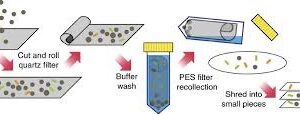




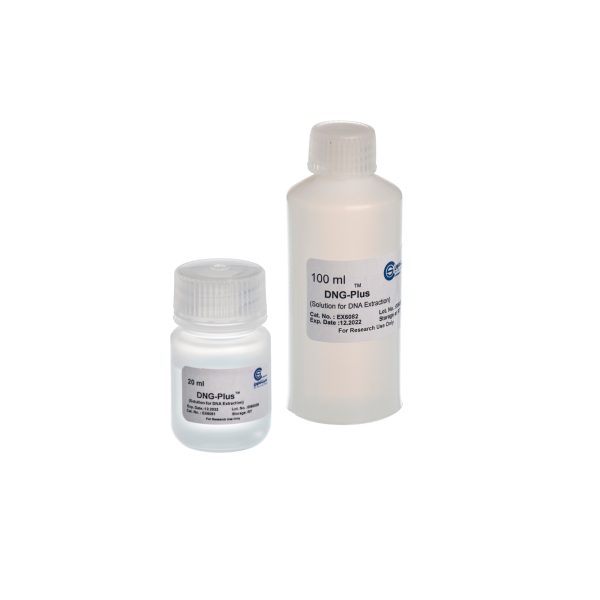
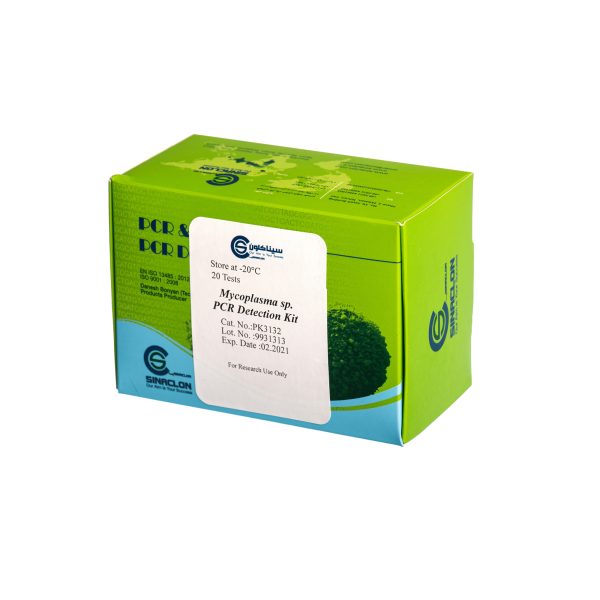
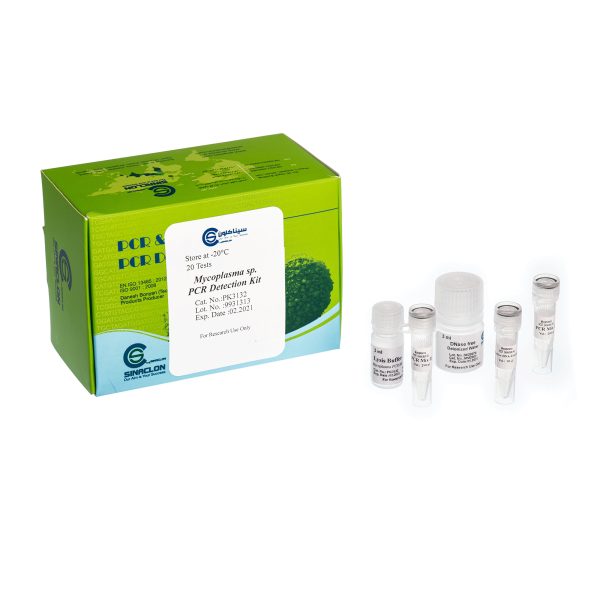
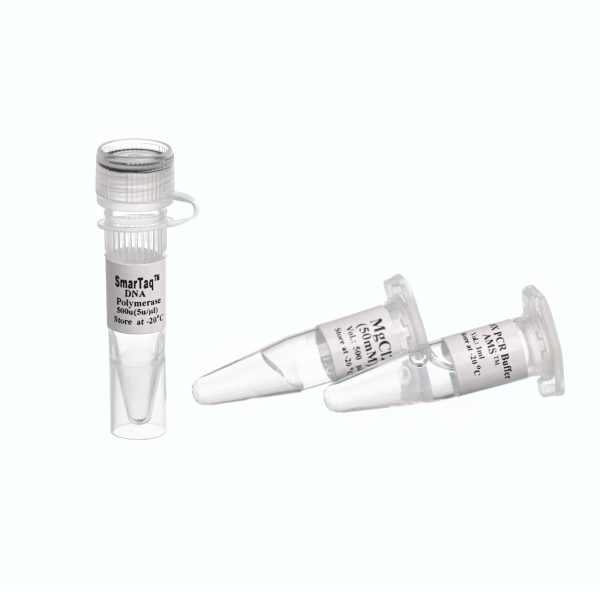
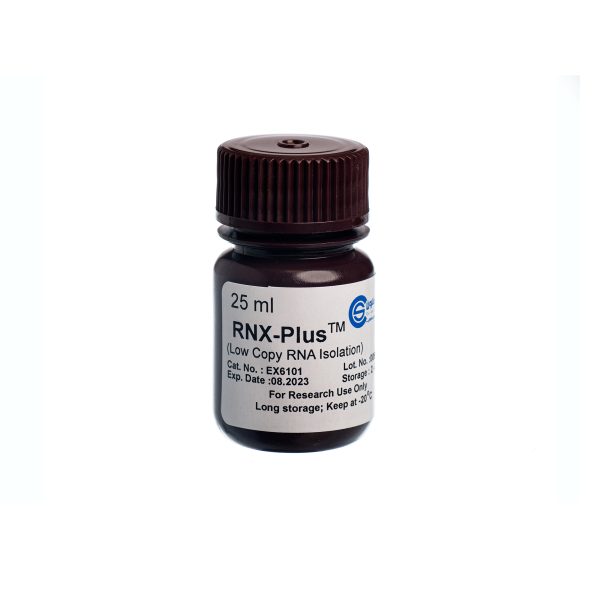

نقد و بررسیها
هنوز بررسیای ثبت نشده است.